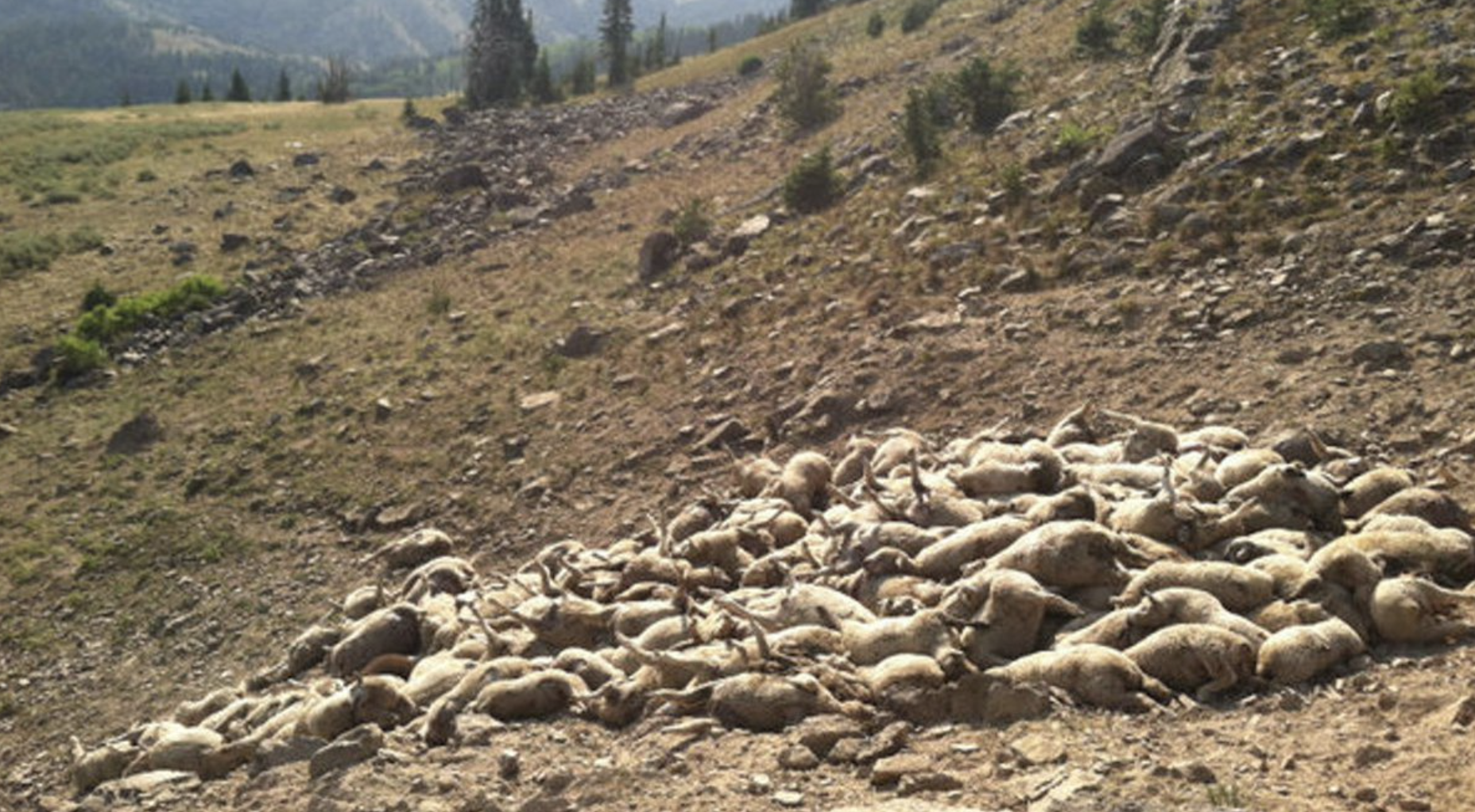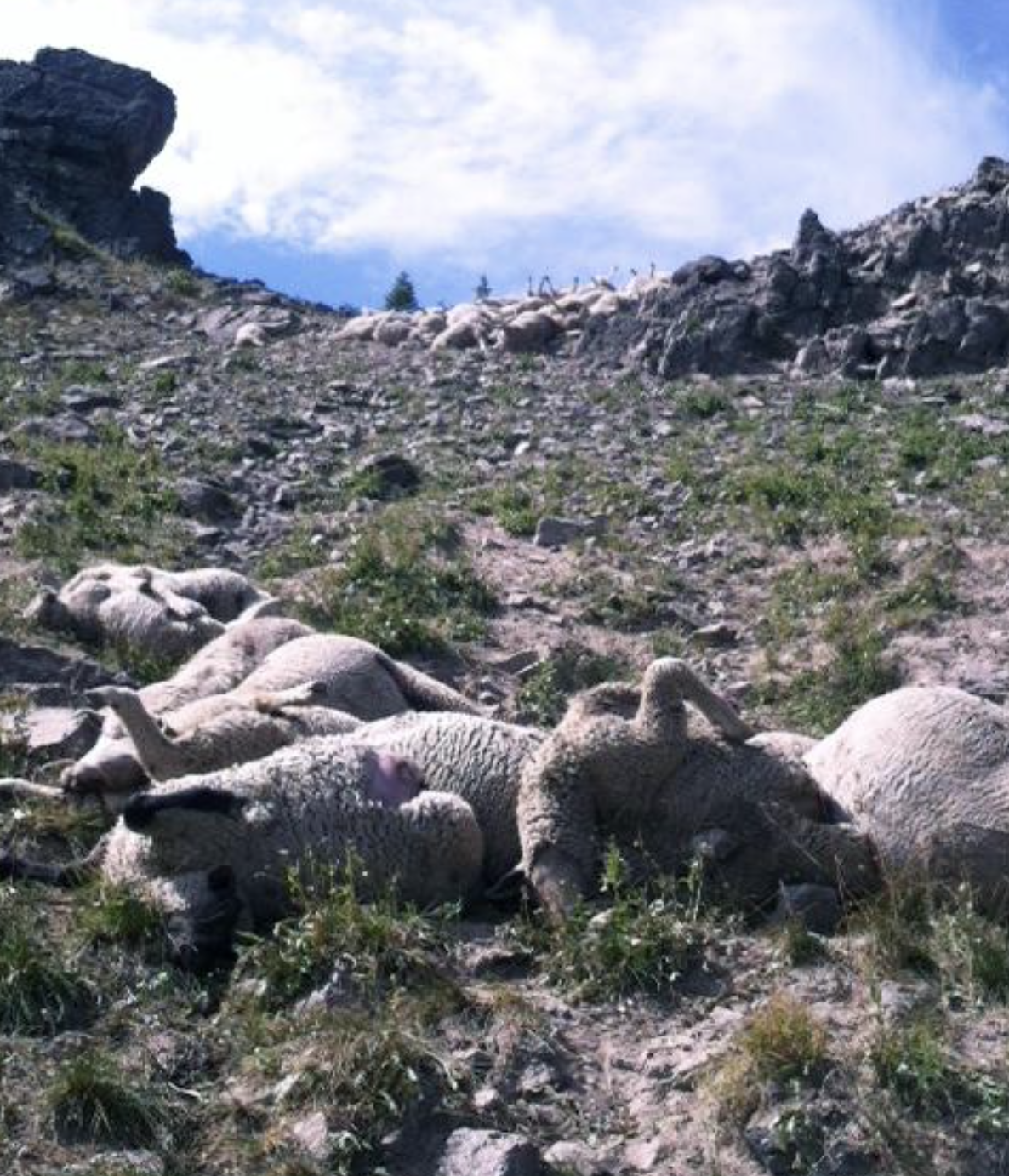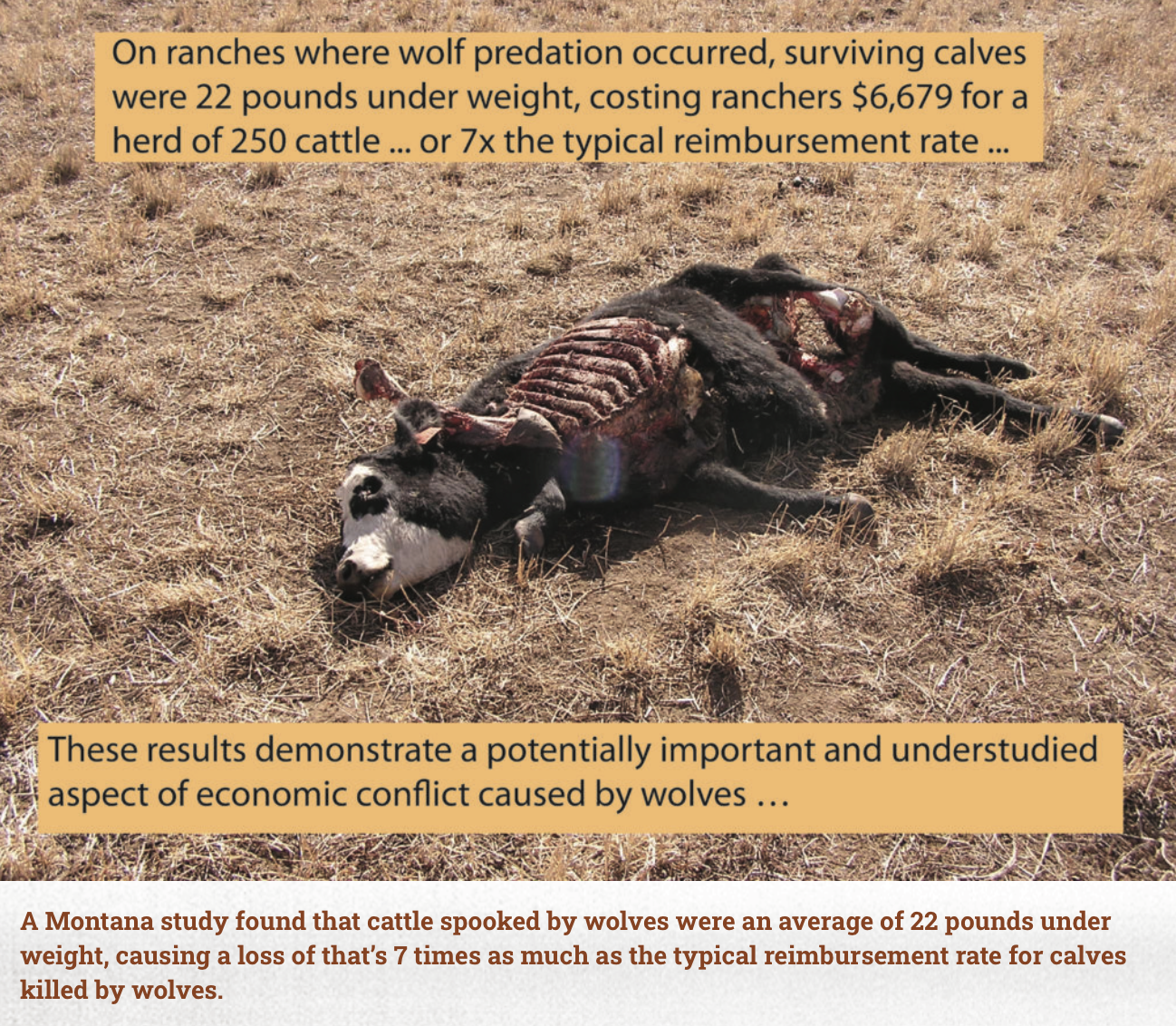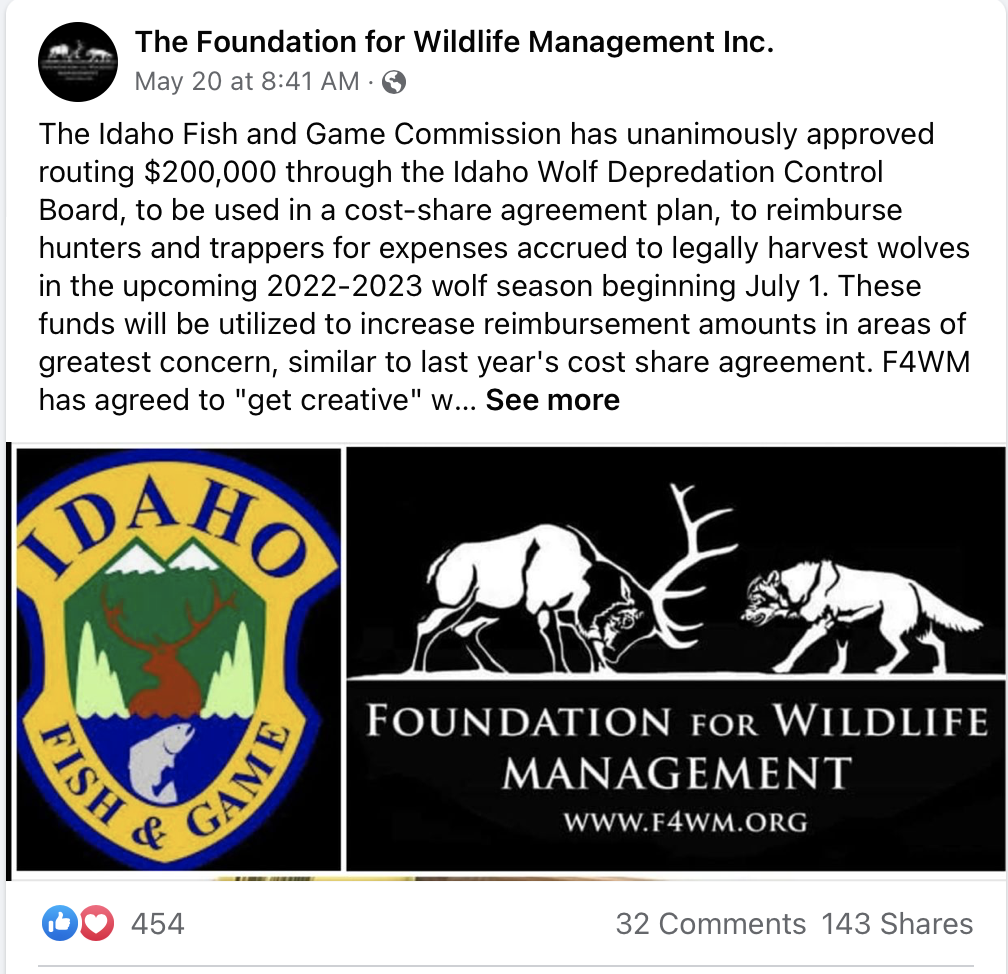Imported Timber-Wolves Kill 143 Sheep in Single Day in Idaho, Equating to Over $50,000 in Damages — Ranchers Pledge to Fight Back
It’s Wolf Season in Idaho
Idaho Rancher, Frank Shirts, told KBOI this was the largest predation by wolves he’d ever seen, when 143 of his sheep were killed by the imported predators. The predators were the Canadian timber-wolf, an imported, foreign-born wolf species not native to Idaho.
“The wolves scared the hell out of them and pushed them into that little canyon and piled them in there,” Shirts told KBOI. “They didn’t consume anything. The sheep just suffocated in the pileup and died. We work to make things good for those sheep every day, so it’s a shame to lose them.”
According to idranch.org, the importation of the foreign wolf species into the American North West has caused a laundry list of unexpected issues, apart from the known possibility of livestock falling prey to the carnivores.
Similarly, in 2013, 176 sheep fell victim to the Canadian canines in a single day, with many having torn flesh, while others died of asphyxiation while trying to escape.
In a similar attack in Montana in August, 2009, the timber-wolves killed 122 sheep in a pasture south of Dillon, equating to more sheep kills in one day than in the entire previous year combined.
On average, ranchers will lose close to 5% of their livestock due to wild predators, a 4% increase since the importation of the foreign born wolf. The economic impact of this loss of livestock alone has shuttered numerous ranchers businesses across the Gem state.
Similarly, the foreign-born wolves have pushed large game into populated areas, causing farmers crops —oftentimes used to feed their livestock — to fall prey to large packs of elk seeking refuge from the imported predators.
Luckily for Idaho, The Foundation for Wildlife Management, a broad coalition of ranchers, farmers and normal Idahoans, have come together to fight back against what many call federal instigation, as the foreign-born timber-wolves were, for many years, protected species.
The Foundation for Wildlife Management has a “wolf harvesting” fund designed to reimburse hunters who successfully target the predators.
To learn more about the timber wolf issue facing North West America, visit The Foundation for Wildlife Management website, and consider becoming a member, and hunting a wolf.





